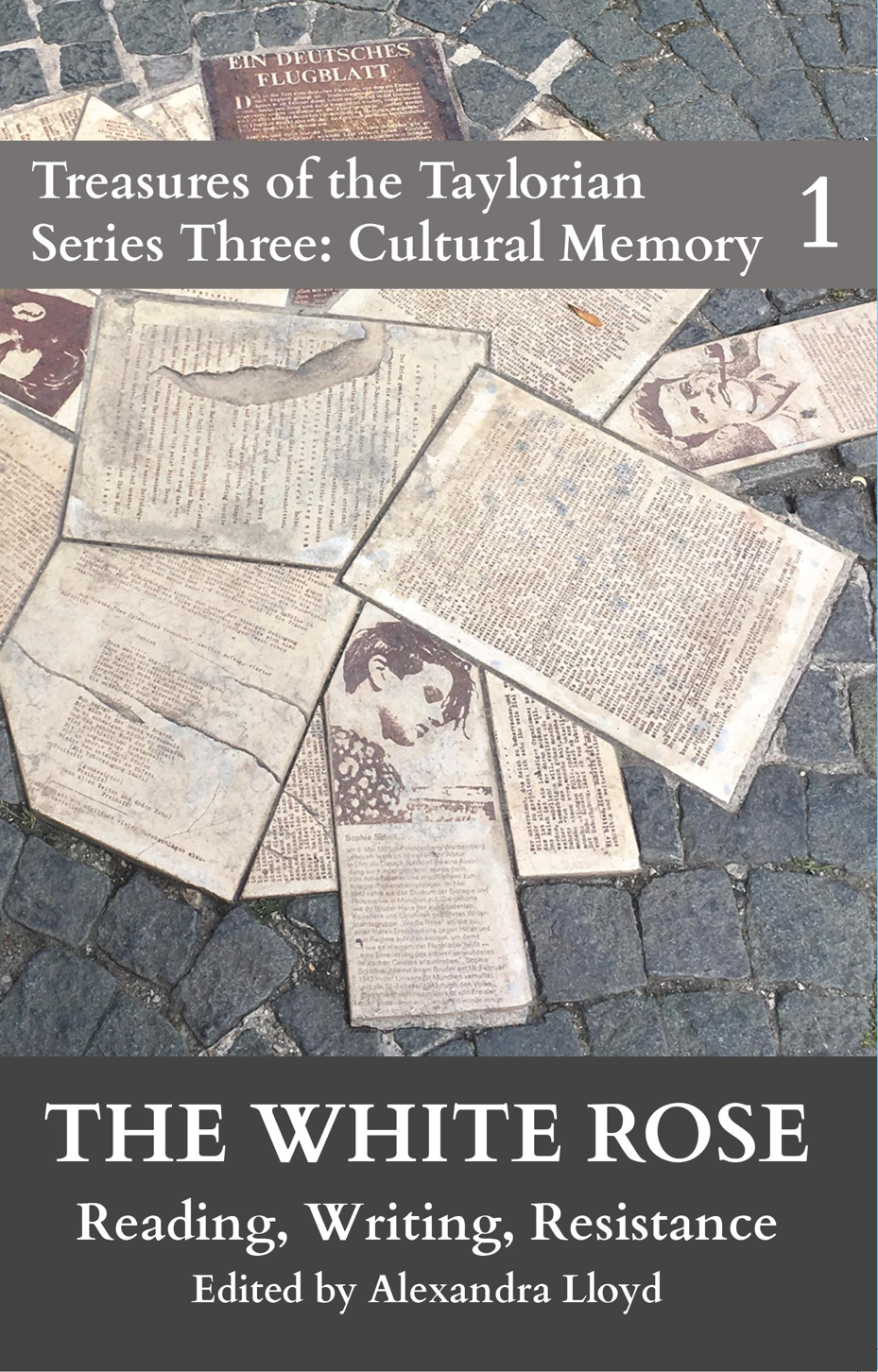The White Rose: Reading, Writing, Resistance (Oxford: Taylor Institution Library, 2019) will be published next month. This edited volume includes facsimiles of the White Rose pamphlets and transcriptions of the German alongside a new English translation. While there are many versions of the pamphlets in English, the translations included here are the result of a collaborative process (as is true of the original pamphlets) and were undertaken by undergraduate students at the University of Oxford as part of The White Rose Project. The student translators outline their approach in a Translators’ Introduction.

In addition to the pamphlets, this volume presents five essays about the White Rose which explore in different ways influences on the group, and the influence they in turn had on post-war German politics and culture. These essays are intended to offer short introductions to those for whom the White Rose is a new subject, and to provide fresh perspectives for those already familiar with the history. One of the most persistent questions asked about the members of the White Rose is: just what motivated them to resist Nazism? In ‘At the Heart of the White Rose — Cultural and Religious Influences on the Munich Students’ Paul Shrimpton explores the philosophical, religious, and literary influences on the group. These came not only from texts, but from authors and thinkers the group encountered, such as Carl Muth and Theodor Haecker. Jakob Knab, in his essay ‘Die Weiße Rose: Freedom of Conscience over Totalitarian Conformity’, traces Hans Scholl’s journey from Hitler Youth leader to spearhead of the resistance, examining the political and cultural encounters that lead him on this journey.
In ‘“Deutsche Hörer!”: News of the White Rose on the BBC German Service’, Emily Oliver examines the influence the White Rose may have had during the war by setting out news of the White Rose broadcast in political commentary and features on the BBC German Service. How much was known about the White Rose’s actions, and what significance did they have in countering Nazi propaganda? Paul Yowell examines Sophie Scholl’s interrogation by the Gestapo agent Robert Mohr as dramatized in Marc Rothemund’s 2005 film Sophie Scholl — Die letzten Tage (Sophie Scholl — The Final Days, 2005). In ‘“We are your bad conscience”: The White Rose Movement and Resistance to Unjust Law’, Yowell connects arguments made in the course of the interrogation to philosophical and historical writings about conscience and unjust law. Finally, in ‘Marc Rothemund’s Sophie Scholl — Die letzten Tage (2005)’, Elizabeth M. Ward explores the portrayal of resistance and the figure of Sophie Scholl in Rothemund’s Sophie Scholl — The Final Days. Ward considers Sophie Scholl as an example of an ‘historical film’, examining, and problematising, its depiction of Sophie and the resistance group. Questions are often asked about the extent to which the White Rose had an ‘impact’. There has been criticism of their youthful impetuosity; some have questioned how much concrete change they really achieved. Hildegard Kronawitter, of the White Rose Foundation in Munich, addresses these points in her foreword to this book. This volume also includes the annotated catalogue for the exhibition ‘The White Rose: Reading, Writing, Resistance’ held at the Taylor Institution Library at the University of Oxford in October and November 2018.



